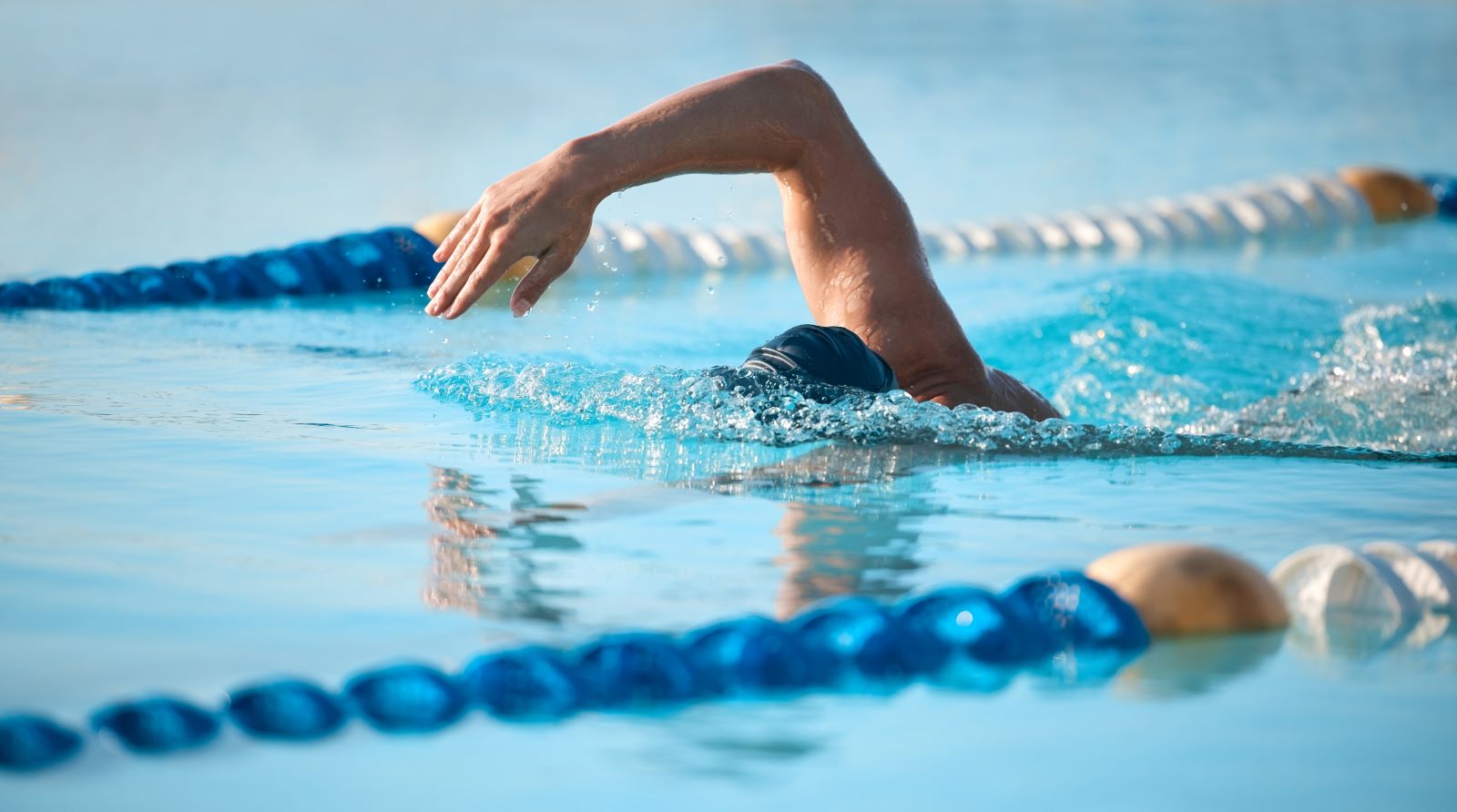<< Back
Diving Right Into a Swimming Routine

June 16, 2023
As the saying goes – just keep swimming. While it isn’t one of the more convenient ways to workout, it happens to be one of the most effective.
“The American Academy of Orthopaedic Surgeons (AAOS) recommends cross-training for maintaining health and preventing injury,” says Hudson Seidel, MD, orthopedic surgeon with the Connecticut Orthopaedic Institute at MidState Medical Center. “Swimming is an excellent adjuvant to any current exercise regimen and can be a great way to start getting active for those looking to start a health program.”
What are the benefits of swimming?
According to Dr. Seidel, there are physical and mental benefits:
- Builds muscle strength
- Stimulates blood circulation
- Helps reduce impact and stress while working out
- Reduces swelling
- Improves range of motion
- Positive impact on your mental health
“Water-based exercise and swimming leads to less force and stress on your joints. The buoyancy of the water supports a portion of your body weight, and puts less stress on painful knees which make it an excellent activity for those with arthritis,” Seidel adds.
> Related: 5 Natural Ways to Lower Your Blood Pressure
Swimming is the complete exercise.
It works your full body: while providing resistance, endurance, and cardio training.
Warm water exercises can help prevent injury, ease slight pain and help strengthen not only your knees, back and shoulders but also your wrists.
Increasing wrist mobility
- Wrist rolls: With your fingers extended and using your full range of motion, gently roll your wrists each direction.
- Making a fist: Squeezing your fingers into a tight fist, holding it three seconds, the stretching your fingers out as far as you can.
- Thumb to finger touches: Stretching your fingers out, one at a time touch your thumb to each finger, opening your hand between each finger touch.
- Piano fingers: With your fingers stretched our roll them from pinky to thumb and back again in a tapping, or piano-playing motion.
- Stretch: With your left hand, gently pull back your right fingers until you feel a stretch on your wrist/forearm and then switch hands.
“Someone does not necessarily have to be a good swimmer or have any swim experience to see the benefits. If you are new, start off by incorporating swimming or water exercise slowly, with even just 10 minutes a day and gradually increase the amount of time you are in the water” Seidel says.